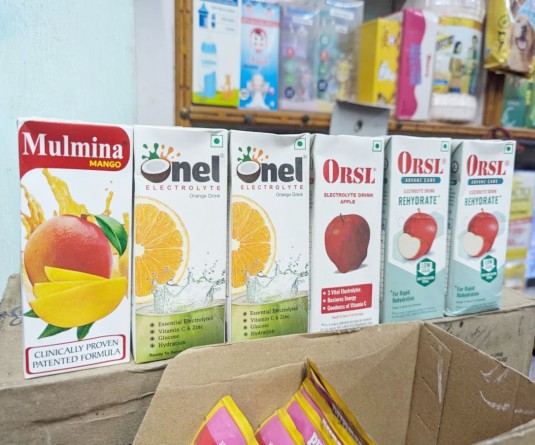APC Y Kikheto Sema seen with senior citizens (teachers) at the Alijo in Yaongyimchen village on December 15. (Morung Photo)

Morung Express News
Dimapur | December 15
Much like the state government’s recent initiative to encourage Integrated Agri & Allied Settled Farming, the three satellite villages of Yaongyimchen, Alayong and Sanglu under Longleng district have been incorporating traditional knowledge with academic classes since 2012.
Elders, most of whom are above the age of 80, and youngsters of the three villages gather at the Alijo (Morung) at Yaongyimchen village, where the art of handicrafts, folksongs, folkdances, folklores, farming, etc., are being taught alongside academic lessons.
The Alijo concept of education was set up through the Lemsachenlok, a community development society, for resurgence of history, tradition, and cultural concepts that are fast declining with modernity. While traditional knowledge is a central part of the curriculum at the Alijo, equal importance is given towards strengthening the formal education system through community involvement.
As such, it is considered an obligation for young adults who have completed their formal education or college students studying outside, to return to the village and help the community by tutoring students at the Alijo. Another primary initiative is bringing all the class 10 students to the Alijo and providing daily coaching classes to prepare them for their HSLC examination.
Even during the current pandemic, the college students, graduates and others who have completed their studies continued to provide free coaching to the students while special classes are being arranged for Class 10 students.
‘Totally integrated society’
“Besides teaching the younger ones about the culture and tradition, they are also imparting academic lessons to the students. Probably, this is the reason why Yaongyimchen produces one of the best results among government schools in the villages,” said Y Kikheto Sema, IAS, Agriculture Production Commissioner who visited Yaongyimchen on December 14.
Kikheto, who extensively worked with former Chief Secretary RS Pandey in introducing the Communization of Elementary Education in the state, told The Morung Express that the variety of life lessons and trainings including education being imparted to the students at Alijo by the community themselves, is much like the Communitization of Elementary Education where a huge responsibility has been vested upon the community for the education of the children.
He said the diverse lessons being taught to the students under one roof could also be related to the state government’s push for Integrated Agri & Allied Settled Farming in a single identified area. “This model adopted by the three villages and facilitated at Yaongyimchen village is a win-win situation for all and it should be emulated by the rest of the communities in the state,” Kikheto said describing it as a ‘totally integrated society.’
The Alijo (Morung) concept of education escorts the young people into the rich traditions and culture of the past and equips them with knowledge about the history of their village, migration story, settlements, indigenous music and its instruments, culture, heritage, tradition, craft making, cooking and the different festivals and occasions.
Environmental concerns and other related themes/issues confronting the society today are an integral subject plans in the Alijo whereby ecological-biodiversity consciousness is created in the minds of the children for safeguarding the nature and preserving wildlife.
Interacting with the farmers and senior citizens at the Alijo on Tuesday, Kikheto, who at first thought that the gathered persons between the age of 80-90 were some elders, said he was overwhelmed when they said “ami khan bi teacher ase toh (we are also teachers).”
Kikheto also noted that Yaongyimchen and its surrounding villages were self sufficient as far as agricultural produces and cattle were concerned and encouraged the community to continue diligently. He pointed out how some villages like Satami under Aghunato division had become self sufficient in rice and declared to not receive any rice schemes from the government.
He said the three villages were exhibiting what true community participation should be like. Kikheto particularly made mention of Nuklu Phom, former Executive Secretary of Phom Baptist Churches’ Association and Rev. Dr. Chingmak Chang founder Eleutheros Christian Society and hoped that more people like them would be produced in the society.




